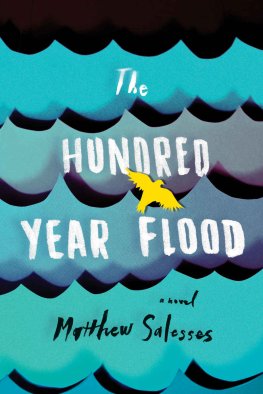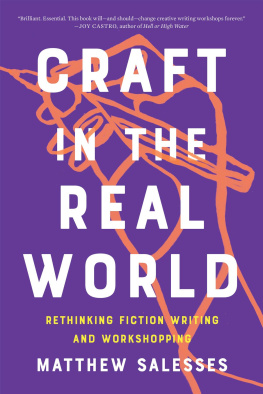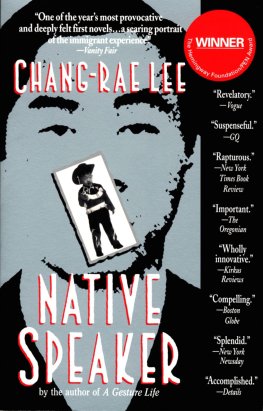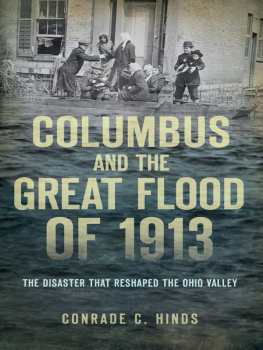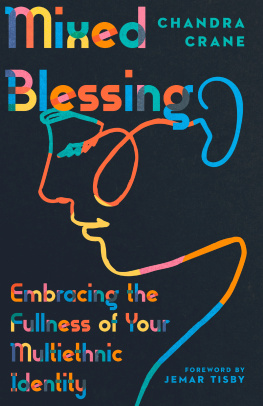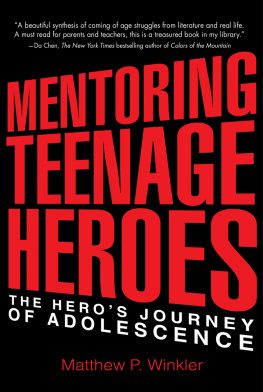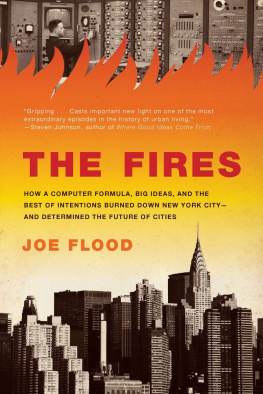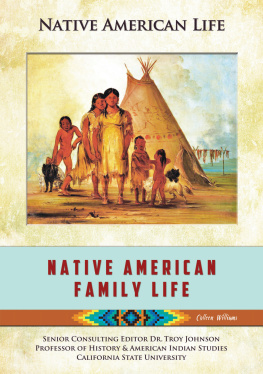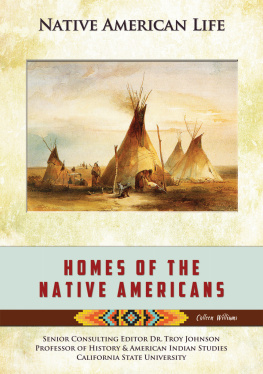Matthew Salesses
The Hundred-Year Flood
We do not know what is happening to us, and that is precisely the thing that is happening to us the fact of not knowing what is happening to us.
Jos Ortega y Gasset, Man and Crisis
Later you look back and see one thing foretold by another. But when youre young, those are secrets; everything you know is secret from yourself.
Jayne Anne Phillips, Machine Dreams
Before his father came and flew him back to Massachusetts General Hospital in September of 2002, these are the things Tee learned in Prague:
If someone sneezes while youre talking, what youre saying is true.
If your nose is soft, youre lying.
If you cut an apple in half and see a star, its good luck. If not, its bad.
If you step in shit, its good luck.
If you pour molten lead into water, you can tell the future from the form it makes.
If your hand itches, youll get into a fight.
If your nose itches, youll get beaten up.
If you pour something and it overflows, someone you know will get pregnant.
If you lift your feet for someone to sweep under them, youll never marry.
To cry at the wrong grave means to bark up the wrong tree.
Often the legends of Prague have to do with selling ones soul to the devil.
Half of Prague will be destroyed by fire, half by water.
When the Czech Republic is in its most desperate hour of need, a sleeping army under the hill Blank will awaken and defeat its enemies.
Tee wrote this list during his first week in the hospital. He woke on a wet pillow, and he scrambled over the railing of his bed and fell to the floor. He pinched his nose shut. Water rushed over him, thick and brown. But he could breathe. He stood and rested the back of his hand on his pillow he had cried in his sleep again. He smoothed down his dry hospital gown and went to the window. The river outside was the Charles, in Boston, not the Vltava, in Prague. He pressed a sheet of paper against the glass, blocking the view, and wrote until the words blurred. When a doctor knocked at the door, Tee touched the bandage around his head and told himself there was no flood, he was in Boston.
The doctor switched on the X-ray board, and they stared at the back of Tees skull. Where Tee had been hit, the nerves had fused together in shock, and the skin had knotted and died until a surgeon had to cut it off. Tee knew who had attacked him, probably a Czech with an American name, Rockefeller, someone Tee had called friend. Tee couldnt remember what exactly had happened. The impact had caused some rare brain damage. He couldnt tell dates or remember song lyrics.
Are you listening? the doctor asked.
Tee stood on one leg and the doctor tested his balance. The solidity of the floor shifted like weather. For the second time that day, Tee was back in Prague. He was running, naked, under the fireworks on New Years Eve. The wind slapping his chest. People pushed and sang and embraced. Then the back of a glowing leg slipped through the crowd
A woman walked out of Tees hospital room. But no one had been inside except the doctor and Tee. Tee started forward, and his balance gave out. The doctor held him up, linking arms, and called for a nurse. The doctor said Tee had to want to recover. Tee had seen that leg that calf before. Where?
Later that month, Tee would transfer to a rehabilitation center, meant to reorient him to the world hed never understood. He would stumble down the halls, searching for a ghost. He took to stopping other patients and prompting them with abstract nouns. They had to get used to every kind of bewilderment. Love, he would say, hands trembling, and someone willing might answer, What goes up comes down or If you give a mouse a cookie. Regret, he would say, and someone might answer, A wish for a perfect life or Aging. Hate, he would say, and some would remember why they were there.
The day Tee decided to go to Prague, his girlfriend pulled him aside at a birthday party in Boston. The talk had turned to 9/11. Stop acting so tragic, his girlfriend said in his ear. For Gods sake, others are suffering worse. Your uncle only killed himself. He didnt die in the towers. That was when Tee knew he couldnt stay in America. He downed his IPA and said, Only? Everyone was talking about death, but he had to keep quiet. He was filling a container inside of him. Into it, he put the things he couldnt say about the seduction of forgetting. When his container was full, he would dump himself out in one dramatic move. A case in point: by the end of that week, he had broken up with his girlfriend and requested a leave of absence.
On the tram back to Boston College from the birthday party, Tee remembered a word his uncle used to like, posturing. Why had that come to him now? His friends were not posturing; was he? As a child he had thought of the word as a topographical feature. His uncle, the pilot, collected maps. There was one map his uncle liked best a map of the wars in Eastern Europe. His uncle had called Prague a city of survivors, an older, less-posturing Paris. Tee used to point out Prague on globes before he knew what posturing meant, when he simply liked the sound of the word. Hed forgotten that. He could hear his uncle flattening the r, describing spires from above, the glow of roofs. He could feel his uncle toss him into the air, that first flight.
He chose Prague for its resistance. A city where, for thousands of years, private lives had withstood the oppression of empires. Both world wars, countless invasions. In the weeks before he left, Tee imagined hiding from the Secret Police, giving up his home to save his ideals. That was what he had to do: resist, move on, leave the familiar behind. It would be his first trip on his own, as hed gone to college three miles from where he grew up. His first trip not counting his adoption. Prague might be the perfect place, after all: a city that valued anonymity, the desire to be no one and someone at once.
Tee arrived in Prague in late December 2001 and met the artist and the artists wife at the turn of the New Year. It snowed that Eve, once in the morning and again in the afternoon. After a late lunch, Tee took the metro to the ruins of the original castle, Vyehrad. He carried a bottle of beer in each pocket. He had paid twelve dollars for a monthly transit pass, a dollar per Pilsner Urquell. Water cost slightly more than beer, a fact he noted in his e-mails home. He didnt miss his friends, though he wanted to be alone, free of expectations. He stepped out of the metro station and into the wind at the top of the hill. A hundred feet down the path, the walls stretched along either side, keeping out a long-gone foe. At the far end, the Vltava ran below, a dozen feet lower than it would reach in August.
Tee bent his head to an arrow slit, shrinking the world into a guardable space. He imagined an army advancing, simply for something in their sparse world to take. Or maybe to take something back. He imagined a little piece of himself, held captive. He had been in Prague for five snowy days. The sun never came out. He wondered again if he should have gone elsewhere for his semester off. Hed enrolled in a certification course to teach English as a foreign language, but he was already skipping. What if the Czech kids saw his Korean half and had to know where he came from? Anywhere he went he was the only Asian in Prague.
The wind blew at his back. At the far end of the castle grounds, behind the Basilica of St. Peter and St. Paul where the devil had lost a legendary bet for a soul, Tee stood for a while in a famous cemetery. He watched a boy return to the same statue over and over, a thin, winged girl that couldnt have meant anything to him. Tee stepped back to give the boy room, or to wonder unobserved. After the boys father led him away, Tee touched the wings. They were scaly, almost reptilian. He imagined the boy lifting those wings onto his own back. Making a myth of himself. Later Tee would learn about Queen Libue, who sent out a white horse from Vyehrad to look for a king and found a man stooping under a doorframe that would eventually become Kafkas castle. After that king died, a maidens army would fight the men for control of Prague. Beside the cemetery was a prayer maze where children knelt in the center and wished. Tee felt cold with history. He poked a finger in the snow and outlined a man and a woman, a baby slipping out of their arms.

